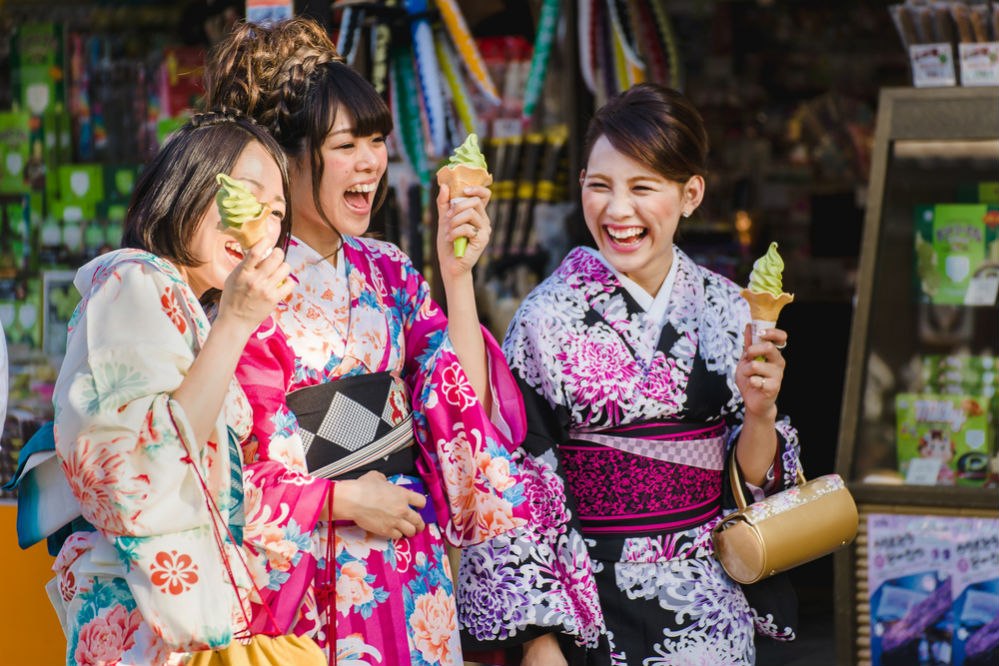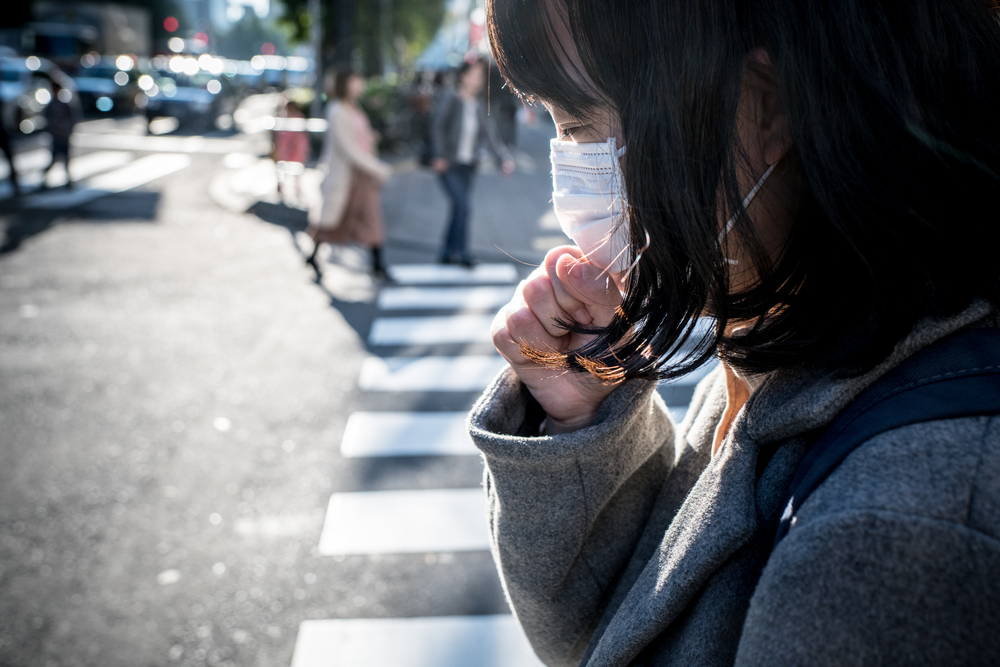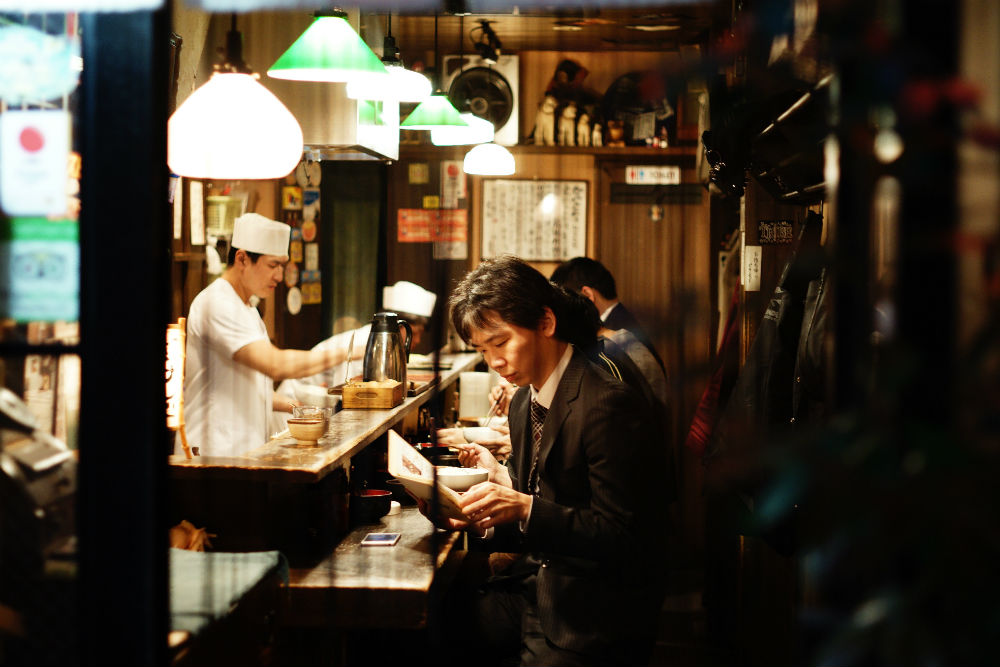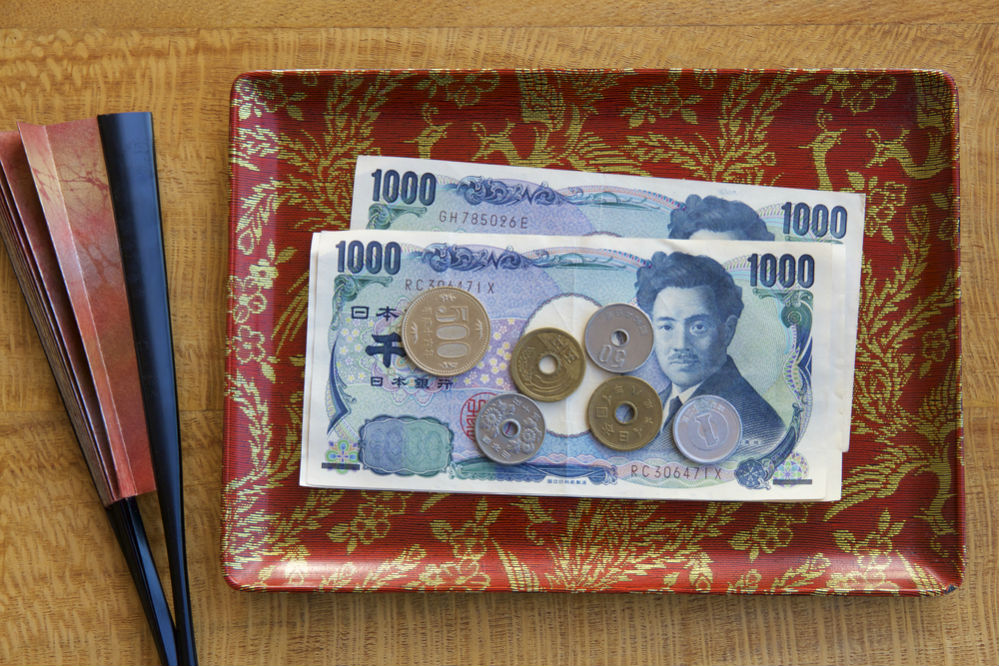Our author spent two weeks in Japan. This, of course, is not enough to understand the country and its inhabitants, but it is enough to get acquainted with the unusual taboos of Japanese society. In this article we give 14 tips that will help you avoid awkward situations on the trip.
Flight hotel
In transport
Do not climb out of line

The Japanese love to line up in neat queues: in stores, at stops and even in the subway. Special signs are drawn in the subway on the platform so that all passengers see where to get up. An attempt to climb forward usually causes not so much aggression as ours, but bewilderment and irritable condescension.
Do not eat on the go

We hasten to upset lovers to chew on the road. A snack on the go or in public transport is considered sloppy and arrogant behavior. The Japanese are trying to avoid such situations. There are exceptions. For example, on the go, you can safely eat ice cream. An unspoken ban weakens during the holidays, when tents with street food appear everywhere. At such moments, the Japanese calmly eat and drink on the go, moving from one institution to another.
Do not give way

This may seem strange, but the Japanese are fundamentally not inferior to the metro, buses and trains. There are several reasons for this:
1. According to Japanese traditions, if someone has done good for you, it is necessary to answer him the same. Such mutual grinding in some cases lasts for years. In the context of this, if you gave way to the Japanese, he feels discomfort and the need to help you with something in response.
I had such a case on the first day in Osaka. I gave way to a man with a child. He refused for a long time, after which he planted a child, hesitated, recognized our route and showed when it was better to go out. 1: 1. You can live on.
2. According to some Japanese, when you give way, you thereby pay attention to the weakness of a person. And this is offensive. And it’s better not to do that.
3. In Japan, the idea was established that when buying a ticket, you, as it were, automatically pay for the place and are not obliged to concede it. Approximately the same approach as in Russia with minibuses and trains. There are special places for the elderly and people with disabilities in each car, so they do not require much attention.
Naturally, with our habits it is difficult to sit in place when a grandmother of about eighty is standing over you at an hour of peak. In such cases, I got up and pretended to go to the door. It seems to have lost the place and did not give a look.
Do not forget about left -handed traffic

This is rather not a taboo, but just a useful advice. It is difficult to immediately rebuild on a different way of thinking. In the early days, you constantly encounter passers -by, you go along bike paths, you look in the wrong direction when you cross the road. Once in Japan, it is better not to rush and let the brain get used to the changed environment.
In the room
Do not forget to take off your shoes

Tourists most often encounter the need to take off shoes in three situations: when entering the house or apartment, while visiting the restaurant of traditional cuisine or during the entrance to the temple.
The basis of this tradition is laid down in antiquity, when the floors in Japanese houses were earthen. Only a small area where people slept and ate with wood and mat was covered with wood. Due to frequent rains, the earth turned into dirt, so before entering the residential area, the Japanese took off their shoes and washed their legs. The centuries went, the Japanese houses changed, the earthen floor occupied less and less space. Now he almost disappeared, but the tradition remains. Curious, but in the private house that we rented in Kyoto, this narrow strip of land was preserved behind the front door.
Do not demonstrate your tattoo

With a tattoo in a prominent place, you may not be put into a bathhouse, a sauna and even a fitness center. As a compromise, employees of the institution sometimes ask to seal the image with a patch so as not to embarrass others. The fact is that tattoos are associated with the Yakuza clans – the Japanese mafia. The fear of Yakuza in Japanese society is still strong, although, according to the Japanese police, the number of mafiosi has been gradually falling for the past 12 years. In 2016, 39 thousand participants in various clans were known.
Do not throw out the garbage

The Japanese are reverent to the collection, sorting and processing of garbage. Each urn has sections for different types of waste. Usually separated organics, paper, glass and plastic. It will not work to dump everything in a pile at home, since employees of the garbage truck may not accept the bag if they notice that a lot of things are mixed there. The rules for the export of garbage are determined by the municipality, so they are slightly different in different regions.
The collected garbage is processed or disposed of. The slag remaining after disposal is pressed and used in construction, including for the hint of artificial islands. The most famous of them is Odaiba in Tokyo.
During communication
Do not touch other people

The Japanese respect their and someone else’s personal space. Therefore, hugs, patting and just touching an unfamiliar person are unacceptable. You should even shook your hand only after the Japanese himself offered you this form of greeting. If this does not happen, it is better to use a bow.
Do not unfold the gift immediately after giving

In Russia, ignoring the gift will seem rude. After all, a person wants to see the emotions that the owner of a new thing will experience. In Japan, on the contrary. If you open the wrap at once, then show your greed and non -contact.
There is a version that such a habit is rooted in Japan, since it is customary to give gifts in the country. Sometimes several times. Therefore, such an opening autopsy allows you to avoid additional awkwardness if this gift was already at the one who was presented. By the way, take gifts, as well as business cards and money, with two hands. So you demonstrate openness and respect for another person.
Do not look into the eyes

A direct look in Japanese culture is a sign of aggression or lies. The reason for this is the medieval norms of behavior, according to which to look into the eyes of a person with a higher status was considered the top of arrogance. It is also not customary to consider and discuss other people. This is especially noticeable in the Tokyo metro, where people are silent, look at the phone, train window or under their feet, but not at the neighbors on the wagon.
Do not wrinkle publicly

In Japan, this is considered extremely indecent. They usually do this when they want to publicly offend a person. If the nose is laid, then the Japanese sniff, sniff and sneeze, but do not wrinkle until only remain.
In a cafe
Do not use sticks for other purposes

Sticks are not only cutlery, but also part of Japanese culture. They are used, including in funeral rituals. It is with this that most of the unspoken prohibitions are associated. Do not stick sticks into rice and put food on them. You can not pass each other’s food with sticks, this reminds of a special rite after cremation. During it, relatives of the deceased with the help of sticks shift the dead man into the urn with ashes. This is the only situation in which the contact of the sticks of two people with one subject is allowed.
Do not give tips

The money left over the check can be perceived in two ways. Either the waiter will decide that you forgot them and try to return them to you, or the restaurant employees will decide that you did not like the service. For foreigners, such punctures usually get away with it, but it is still better not to put the Japanese before a painful choice. In some bars there are special banks or cups at the checkout where you can throw off a trifle, in other cases it is better to hold yen.
Do not give money in your hands

It is not customary to transfer bills and coins from hand to hand. In Japanese supermarkets, as in ours, there are special trays where you should put money. But the attitude towards them is different.
For the first few days, out of habit, I tried to give the entire amount to the hands of the cashier, the result was different. Someone was embarrassed, but took, someone moved the tray to me, one cashier even took the money, put it in a tray and only then took them from there to the cash desk. Apparently, so he tried to teach me the right behavior in the store.
If there is a need to transfer money from hand to hand, then they are usually cleaned in an envelope.
A convenient way to book hotels online is on onetwotrip.

